SFI Representatives Spoke in the Conference ‘Inspiration through Time: Women’s Ministries in the Orthodox Church’
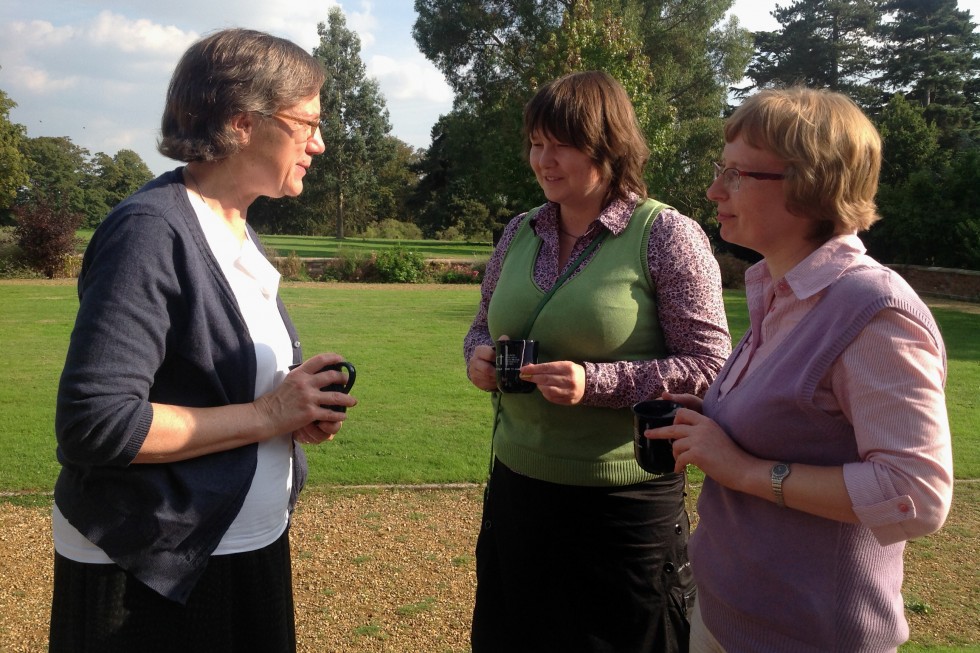
Dr Mary Cunningham (University of Nottingham), Lidia Kroshkina (St Philaret’s Christian Orthodox Institute) and a 3rd year Theology student at St Philaret’s Ksenia Tsvetkova
The conference was opened by Metropolitan Kallistos (Ware). The participants included Fr. Andrew Louth (Durham University), Archim. Ephrem (Lash) (London), Professor James M. Nelson (Valparaiso University), Dr. Mary Cunningham (Nottingham University), professors and specialists from Winchester, Oxford, Cambridge, Toronto, the monastery of Saint John the Baptist in Essex and other places.
St Philaret’s Institute was represented by Zoya Dashevskaya, dean of the Faculty of Theology, Lidia Kroshkina, lecturer in Missiology, Catechetics and Homiletics, and Sofia Androsenko, a 4th year Theology student.
Zoya Dashevskaya’s paper was focused on the ministry’s content and ordination of deaconesses, widows and virgins as recorded in early canonic liturgical manuscripts. In the early church, both men and women were ordained to many different ministries carried out in their communities. The content of these ministries was not reduced only to liturgical actions but correlated with spiritual gifts of ordained persons. The comparison of early church practices with the contemporary ones, that exclusively associate the idea of ministry with a church building or even just an altar, raises the question of the New Testament content of church ministry and its actualisation in today’s church life.
Lidia Kroshkina presented a paper about the ministry of the righteous martyr Saint Maria (Skobtsova). Her theological thought as well as her missionary, pastoral, charitable and martyric ministries are based on the revelation of sobornost regarded as a ‘feeling of unity of all with all’. Mother Maria saw a profound distortion of the Christian spirit in a widespread idea of individual salvation (‘God and my soul’, ‘me and my cross’). Cross-bearing in her theology and life was associated with sharing the suffering of this world.
Sofia Androsenko described the contemporary experience of women catechists’ ministry in the Transfiguration Brotherhood. In her brief paper, she touched upon some pastoral and educational aspects of catechesis and gave an overview of sisters catechists' experience in this ministry as well as some of the difficulties they may face. The practice of women’s ministry as catechists in a spiritual movement allows to suggest that today the problem of women's church ministries (and equally those of men) has to be discussed rather in the context of the church needs and spiritual gifts and vocation of a person, than as an issue of gender or culture.
Among other topics raised in papers and discussions were issues on participation of men and women in church sacraments, interdisciplinary aspects of psychology and theology, poetic heritage of women hymnographers, theological writings and life of Elizabeth Behr-Sigel and Wendy Robinson, who brought up in the 20th century questions concerning women's ministries and ordination, and others.
The conference proceedings will be published.
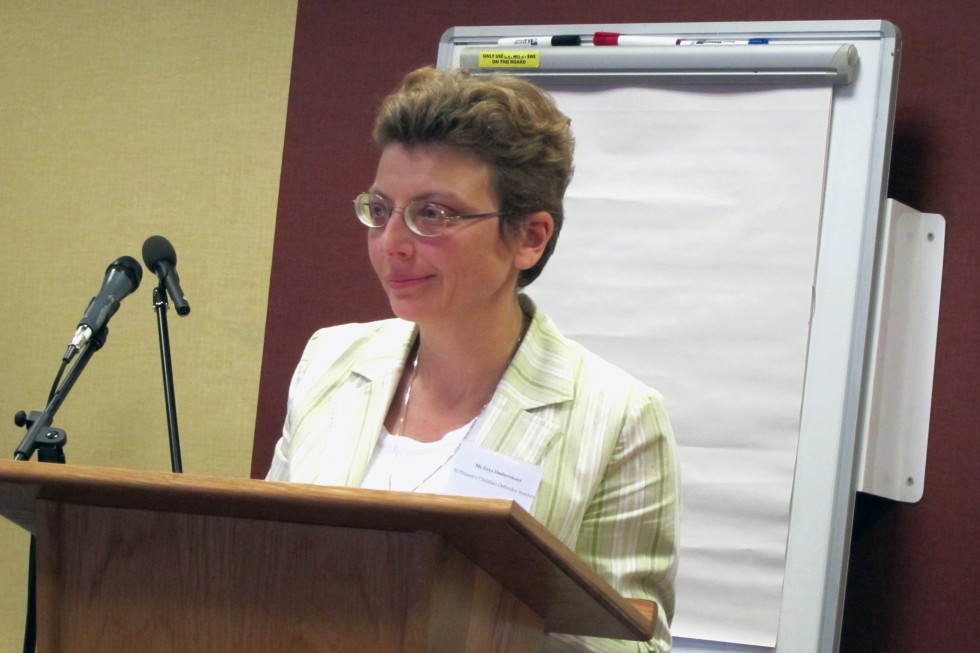
Zoya Dashevskaya, dean of the Faculty of theology at St Philaret’s Institute, presented a paper on the ministry’s content and ordination of deaconesses, widows and virgins as recorded in early canonic liturgical manuscripts
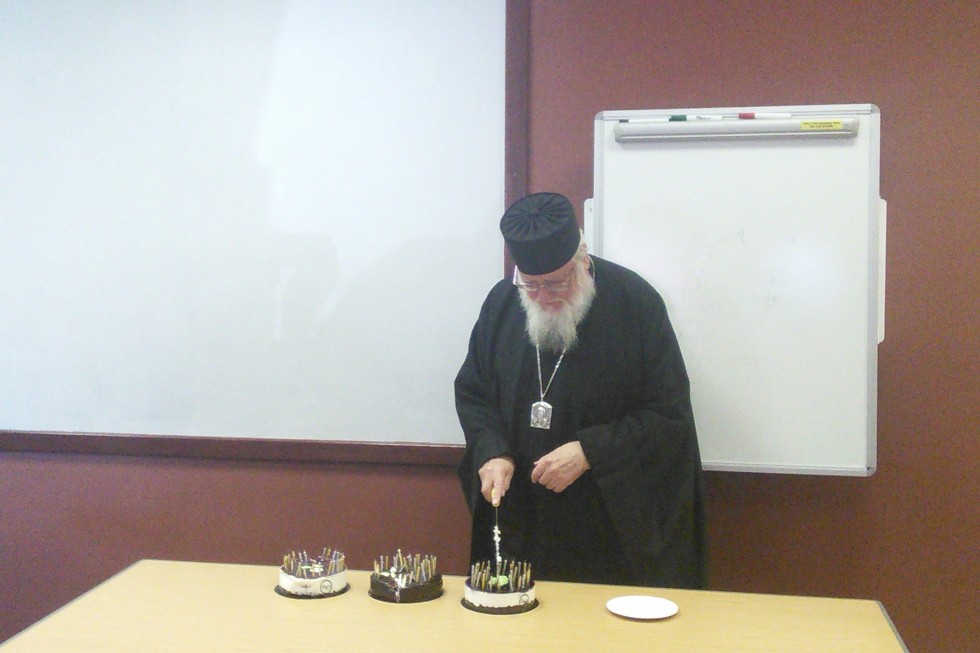
Metropolitan Kallistos (Ware) blew out the candles and cut birthday cakes. The conference began with congratulations to his Excellency on his 80th anniversary
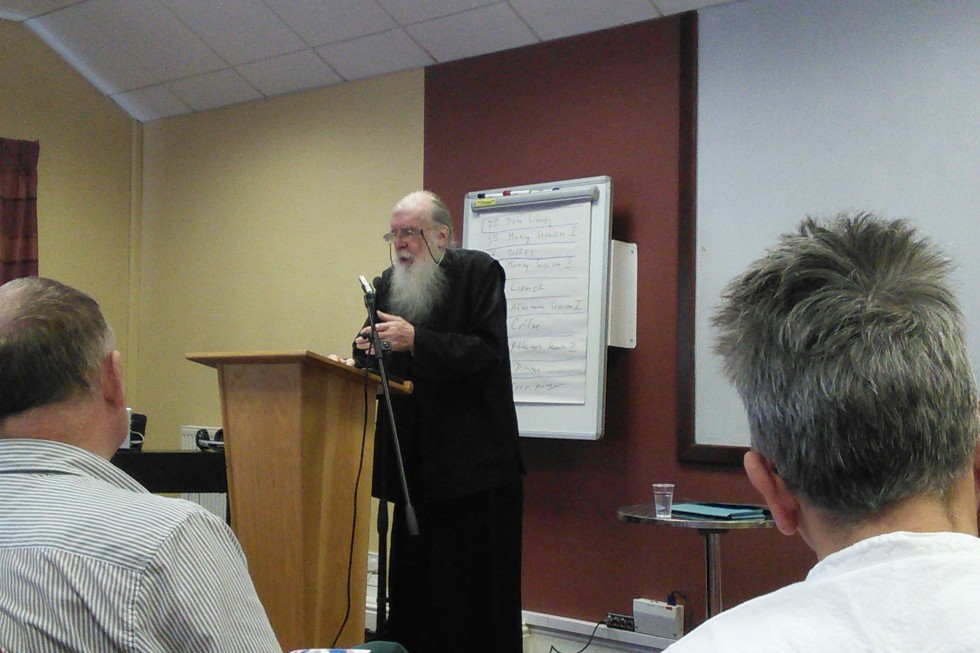
Archimandrite Ephrem (Lash) (London)
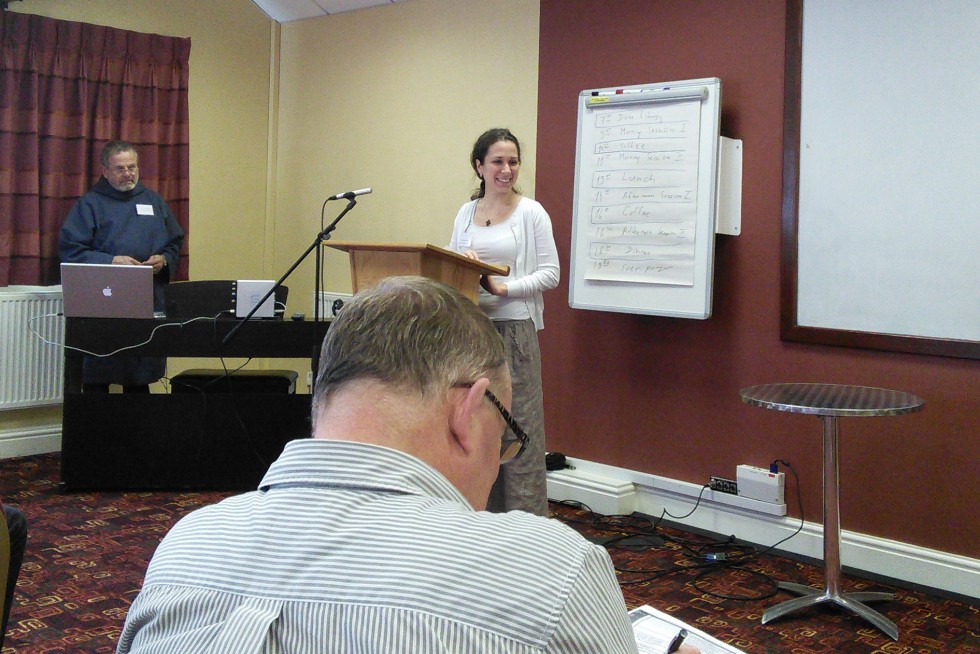
Sofia Androsenko presented a paper on women catechists’ ministry
